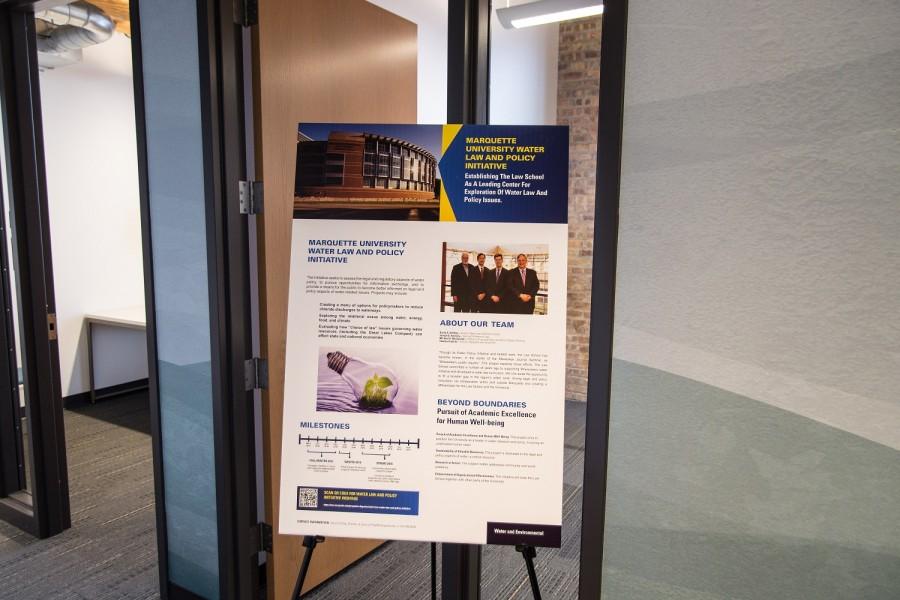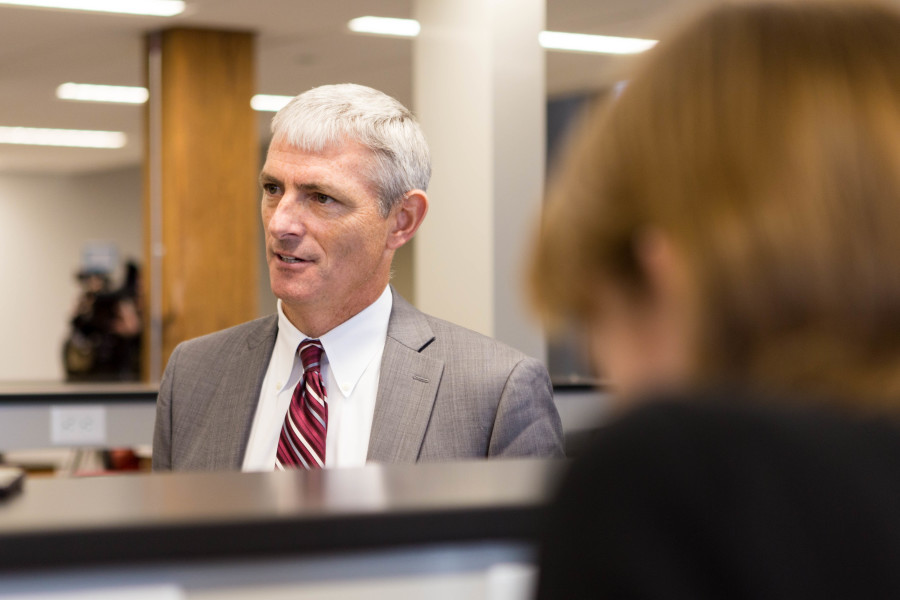Marquette’s space in downtown Milwaukee’s Global Water Center officially opened Thursday, providing the culmination of an effort that University President Michael Lovell said was six years in the making.
“(The center) positions Milwaukee to be one of the international leaders around water technology,” Lovell said at the opening of the center.
Dean Amhaus, president and CEO of The Water Council, mentioned the center’s ever-growing connection to the international community.
“You just gotta come and see what’s going on here,” Amhaus said to his Japanese colleagues when they voiced their hesitation about visiting.
Since coming to the center, Amhaus said they were impressed.
The sixth floor of the center is used by 13 Marquette research teams of students, faculty and staff. The team members come from the College of Arts & Sciences, the College of Engineering, the College of Education, the Law School and the Haggerty Museum of Art.
Other universities share spaces in the building as well, including Milwaukee Area Technical College, University of Wisconsin-Whitewater, University of Wisconsin-Madison and the University of Wisconsin-Milwaukee.
“Collaboration is what this brings – collaboration, not just with UW-(Milwaukee) but among the researchers at Marquette … and the industries,” said Dan Zitomer, a civil, construction and environmental engineering professor and director of the College of Engineering’s Water Quality Center.
Rich Meeusen, co-chair of The Water Council, said the Global Water Center is where individuals will fight the war on water shortages.
“We have solutions to the world’s water problems,” Meeusen said. “Our problem is that they are too expensive and too big for practical application in third world countries. What we need is people to make things smaller and cheaper. Who makes things smaller and cheaper? The answer is: engineers.”
Lovell announced in November one of the projects to be completed in the space. Marquette is co-leading a national initiative to advise the White House and Congress on water use in manufacturing. Faculty and staff will work throughout 2016 to study three main concepts: how companies use and re-use water, how technology can make businesses more water-efficient and water-related policies to best help American businesses compete in the future.
Lovell is leading the initiative with Ajita Rajendra, CEO of A.O. Smith Corporation, which manufactures residential and commercial water heaters and boilers.
Marquette’s space in the center was announced during Lovell’s inaugural address in 2014. University Architect Lora Strigens said the space is around 8,000 square feet and includes lab areas, offices and open work stations.



